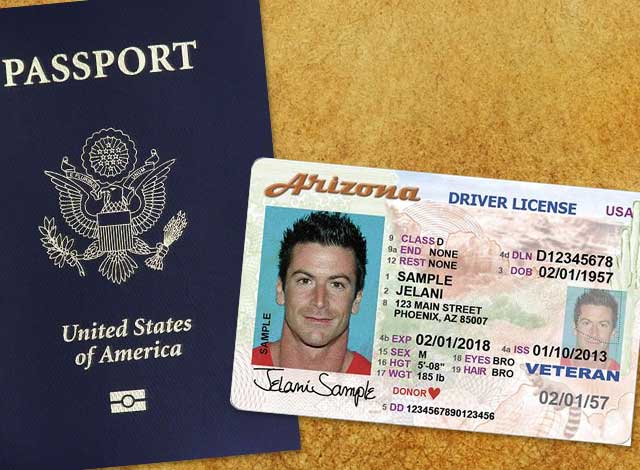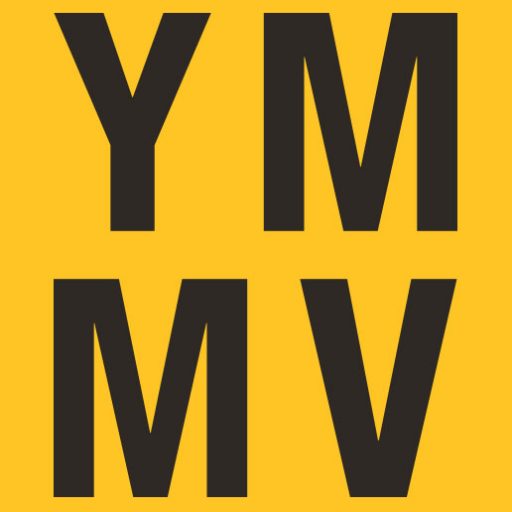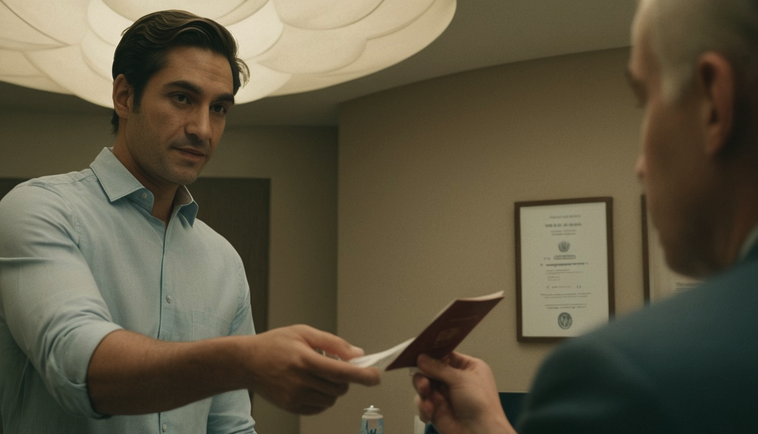Unless you’re at a hotel that charges hourly rates via cash only and expects payment upfront (you know the kind of place I’m talking about. NOT Marriotts, Hiltons, Hyatts, etc., and NOT paid with points), just about every hotel out there nowadays requests I.D. when you check-in.

If you’re of a certain age, you may remember a time when hotels in the U.S. didn’t ask for your driver’s license, passport or other government-issued I.D. when you arrived at your overnight home away from home.
Like so many other things, 9/11 changed that. So has technology. The things some people (try to) do in present-day times, as opposed to a couple of decades ago, have also had a hand in these alterations.
Hotels in other countries have been requesting I.D. as standard practice for a long time, each for their own reason (although it’s usually based on security). But in the post-9/11 years, just about all U.S. hotels joined the rest of the world and started requiring hotel guests to show I.D. when they check in to a hotel (there are actually no federal laws and very few state/city/county laws that say this must be done; it’s just policy, in the name of taking precautions).

Once they have that information, here’s what they (can) do with it:
- Pass the information on to the federal or local government, upon request, if they are looking for someone in particular…a kidnapper, human trafficker, prison escapee and other people who might be considered immediate threats.
- If you’re staying at a hotel overseas, it’s a way for the government you’re visiting to keep track of their foreign visitors.
- It helps prevent fraud and identity misuse.
- It ensures age verification of whoever is renting the room (some hotels [or hotel chains] have a policy of not renting to someone under a specific age).
- If specific hotel guests damage their room (trashing it, smoking in it, etc.), the hotel knows who they are so they can try to get compensation, as needed, beyond a deposit for incidentals. This also ensures said guests are not allowed to rent rooms from that hotel/chain anymore if deemed necessary.
- It’s a good business practice to know who is staying on your property and is a precaution if anything unexpected happens (same as when a plane or ship has a passenger manifest). That could be as simple as finding out who owns the car in the parking lot that was just hit by another driver, or as tragic as a fire at the hotel and needing to I.D. bodies. Even if the victim wasn’t actually staying at the hotel – maybe it was someone visiting a guest – the names of the guests themselves might offer a clue for identification.
- Unfortunately, they can also sell your info.
All of the above are so serious (and some are even kinda ominous)! On the more pleasant side, there’s this:
- If you do repeat business with the same hotel chain, the hotel may want to recognize you for that and give you upgrades and other perks to thank you for your patronage. You points and miles gurus know what I’m talking about ;-).
And that’s really about it. Back in the immediate post-9/11 days, people seemed to be more questioning of having to show I.D. when they checked into a hotel. But nowadays, assuming you have nothing to hide, most people accept that showing your ID at a hotel is really more for safety and protection than anything else.
Want to comment on this post? Great! Read this first to help ensure it gets approved.
Want to sponsor a post, write something for Your Mileage May Vary or put ads on our site? Click here for more info.
Like this post? Please share it! We have plenty more just like it and would love it if you decided to hang around and sign up to get emailed notifications of when we post.
Whether you’ve read our articles before or this is the first time you’re stopping by, we’re really glad you’re here and hope you come back to visit again!
This post first appeared on Your Mileage May Vary
Join our mailing list to receive the latest news and updates from our team.

